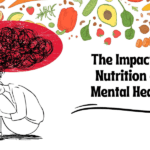By: Muhammad Zubair Sarwar
The Pursuit of Happiness
Happiness is a blessing. For humans, seeking it is a subject at the core of the heart. Philosophers, psychologists, and scientists have declared it is the great resolution of physical and mental issues.
In this blog, we will discuss simple yet practicable and fruitful strategies for transforming your life and achieving a happier future.
We will draw inspiration from famous psychologists like Carl Rogers and philosophers like Aristotle as well as scientifically proven strategies that will provide a great path toward everlasting joyness. Moreover, you will learn how to prioritize your mindset, well-being, and personal relations.
Basis of Happiness:
Philosophical Insight:
Before discussing in detail the strategies, it is important to know what happiness means?
The philosopher Aristotle defined it as ‘’EUDAIMONIA’’ or ‘’FLOURISHING’’. He was of the view that it has not been a pleasure; instead, it is a well-lived life having salient features of personal development, strengthened relations, and productive contribution towards society.
Aristotle’s philosophy is also supported by modern philosopher Jean-Paul Sartre that it depends upon responsibility and actions in a positive dimension. In short, happiness has not been only about feeling pleased; it is actually about living a purposeful life.
Psychological Insight:
Subjective well-being (SWB) is the parameter on which it is measured and contains two main factors
- Satisfaction
- Emotional Happiness
Carl Rogers, one of the founders of psychology, declares self-actualization as true enjoyment. Positive psychology propagated by Martin Seligman introduced the term PERMA, which means positive emotions.
Now we will discuss five fundamental strategies to live a happier and healthier life.
Gratitude: Cornerstone of Positivity:
Gratitude is one of the most impactful habits for fostering joy and maintaining a positive attitude. Research published in the Journal of Personality and Individual Differences highlights that individuals who regularly practice gratitude experience fewer symptoms of anxiety and depression.
A Simple Thankfulness Practice:
- Each day, write down three things you are grateful for.
- This simple habit shifts your focus from negativity to a positive and uplifting perspective.
Scientific View:
Neuroscientific studies reveal that practicing gratitude activates specific brain regions associated with cheerfulness and fulfillment.
- It stimulates the ventromedial prefrontal cortex, which enhances feelings of joy and emotional well-being.
Make gratitude a daily practice and experience its profound impact on your mental health and outlook on life.
Dive into Mindfulness:
Immerse yourself in the present moment through mindfulness practices. Cultivate inner peace and clarity by focusing on your thoughts and surroundings.
Implementation of Mindfulness:
Perform medication so that you feel focused on breathing and feel in the body. After practice, you will be able to enjoy life and make decisions with more calmness.
Scientific View:
An article in Psychiatry Research explains that brain scans show mindfulness meditation can create positive changes in the brain. It helps improve self-awareness, emotional intelligence, and memory.
Making Relationships Stronger
Assign time to build stronger relations with family, friends, and colleagues. Always listen carefully and with patience, which will make your relations stronger.
Scientific View:
Research shows that people with strong social relations suffer less from mental diseases as Cortisol and Stress hormone levels are decreased. Moreover, stronger relations contribute towards physical and emotional well-being.
To Find Meanings of Life:
Viktor Frankl’s Perspective:
Psychologist Viktor Frankl believed that the key to contentment lies in finding purpose and meaning in life.
Even during tough times, personal growth and strong relationships can help resolve challenges.
Discover the Purpose of Your Life:
Emphasize the values that you possess from the core of your heart. What sort of action makes you feel joy? You should incorporate these features into your life and feel the real spirit of cheerfulness.
- Reflect on your core values.
- Identify activities that bring you genuine joy.
- Incorporate these values and actions into your daily life.
Scientific Insight:
Research from The Journal of Positive Psychology shows that individuals with a strong sense of purpose:
- Enjoy better mental health.
- Experience greater resilience.
- Have lower mortality rates.
Make Regular Exercise Your Routine:
Benefits of Regular Exercise:
- Exercise acts as a natural antidepressant.
- It improves mood, reduces anxiety, and promotes better sleep.
How to Make Exercise Part of Your Life:
Dedicate 30 minutes daily to physical activity. Choose activities you enjoy, such as:
- Walking
- Yoga
- Jogging
- Any movement that makes you happy
Scientific Insight:
According to the American Psychological Association, exercise increases:
- Endorphins: The “feel-good” hormones that boost mood.
- Serotonin: A hormone that helps reduce depression and improves emotional health.
Sleep Patterns: A Pathway to Joy
Why sleep matters:
- Sleep is often overlooked but is essential for joyfulness.
- Poor sleep can lead to emotional instability and negative thoughts.
How to Improve Sleep Quality:
- Stick to a consistent sleep schedule.
- Limit screen time before bed.
- Create a calming bedtime environment.
- Aim for 7–9 hours of quality sleep each night.
Scientific Insight:
Research highlights that good sleep:
- Boosts emotional resilience.
- Enhances memory and decision-making.
- Increases overall productivity (Matthew Walker, “Why We Sleep”).
Self-Compassion: A Trait to be Admired:
What is self-compassion?
Treat yourself with kindness, especially during tough times.
Encourage yourself rather than criticizing mistakes.
How to Build Self-Compassion:
Acknowledge your efforts, even if you face setbacks.
Practice positive affirmations like:
“I am strong.”
“I am capable.”
“I am enough.”
Take time for self-care and reflection.
Scientific Insight:
Studies published in Mindfulness reveal that self-compassion:
- Reduces stress.
- Increases emotional resilience.
- Leads to a healthier and happier life.
The Science Behind Happiness
Neuroplasticity: The Brain’s Ability to Change
- The brain can rewire itself through new experiences and practices.
- Activities like mindfulness, gratitude, and exercise reshape neural pathways for long-term positivity.
Happiness Chemicals:
- Dopamine: Brings pleasure and joy; increased by exercise.
- Oxytocin: strengthens bonds; boosted by close relationships.
- Serotonin regulates mood; enhanced by practicing gratitude.
Scientific Insight:
Research in Nature Neuroscience shows that positivity strengthens neural connections, improving mood and emotional resilience.
Final Thought:
Practice Self-Compassion
It isn’t about chasing a final destination—it’s about creating a fulfilling journey. By focusing on:
- Building strong social connections.
- Practicing gratitude and mindfulness.
- Incorporating regular exercise and self-compassion.
- You can cultivate a positive mindset and lead a healthier, more meaningful life.
As Aristotle said, “Happiness depends upon ourselves.” Take the first step today to live with purpose and joy!















